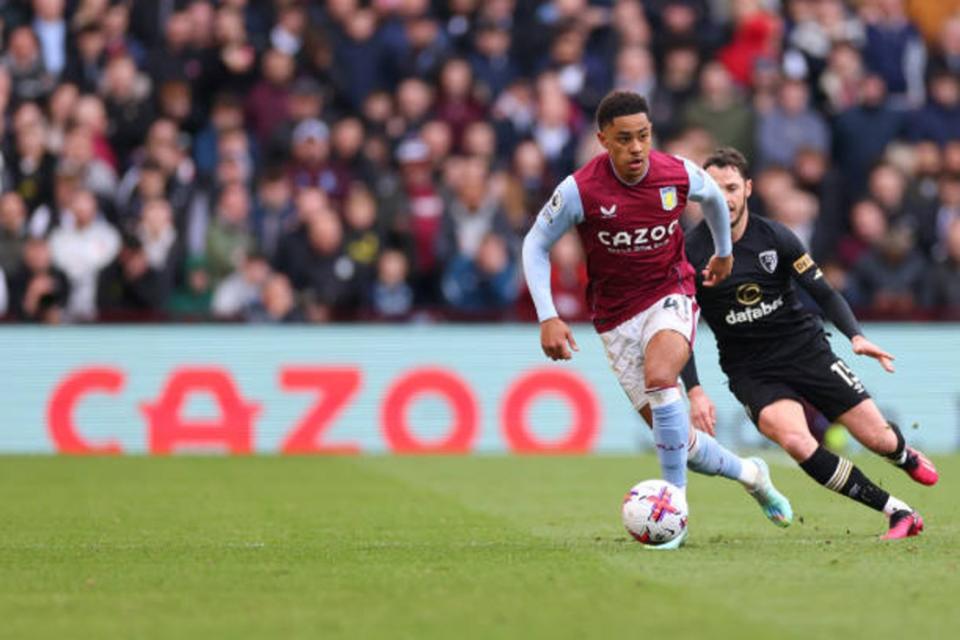Cazoo has collapsed. Was its bold approach to sport sponsorship to blame?

There was a time in recent history when one could barely move for seeing a Cazoo logo at a major sporting event.
The British online car dealership, which in 2021 floated on the New York Stock Exchange at a valuation of £7bn, had decided it would commit to sport as the main avenue by which it would grow awareness of its brand. And commit it did – to the tune of an estimated $36m across Europe in 2022 alone.
Over a frenzied two-year period between 2020 and 2022, Cazoo seemed to snap up every rights deal available, sponsoring flagship sport properties like the Hundred, the Welsh rugby team, the PGA European Tour and several clubs in the top tier of European football.
The Cazoo derby
Indeed such was its ubiquity in elite sport, that there was even a Premier League fixture—Aston Villa versus Everton—known affectionately as the “Cazoo Derby” given the brand’s prominent presence on both teams’ shirts.
But after a protracted decline – which saw the firm’s valuation tank from a pandemic-bolstered £7bn to just £200m in the space of less than two years – the second-hand car dealership collapsed into administration last week.
Cazoo’s nosedive has sent chins in the sports marketing sector wagging. Was the ‘exposure-through-sheer-unrelenting-quantity’ approach adopted by the tech company to blame for the collapse of a company that at one stage was the fastest to reach unicorn status in British history?
The short but unsatisfactorily equivocal answer is: ‘yes and no’.
But by adopting such a scattergun, quantity-first approach to sponsorship, Cazoo fell foul of two of sponsorship’s cardinal sins
Fundamentals
The car dealer was plagued by a catalogue of fundamental issues; ones that even the most adroit of sports marketing strategies would have been helpless to solve.
The firm’s astronomic rise was based largely on a form of fiction. The pandemic precipitated an acute shortage of the chips that are required for new cars, delaying construction times that in turn sent sending both demand and prices in the second-hand market ballistic.
As the chip bottleneck subsided with the end of lockdown restrictions, the second-hand market regressed to its mean, and Cazoo’s prospects plummeted.
Even a multi-year deal with David Beckham that contractually obliged the footballer to mention Cazoo every second sentence couldn’t have saved it from the geopolitical shocks brought about by a once in a century event.
There was also the not insubstantial factor that, rather than having a car delivered to them (as was Cazoo’s model), where there isn’t a pandemic ravaging through the country, people do tend to like to try their new ride out before they decide to part with several months’ wages.
But that is not to say the firm’s approach to sport is immune from blame.
Sport sponsorship’s cardinal sins
Sponsorship is an exploit in which you get as much as you give. Sports fans are a tribal, illogical, proud, and immensely devoted breed. Beyond the exposure that comes with your logo appearing in stadia attended by thousands and on TV output watched by millions, done right, few marketing avenues will solicit ‘brand love’ as sponsorship can.
But by adopting such a scattergun, quantity-first approach to sponsorship, Cazoo fell foul of two of sponsorship’s cardinal sins.
First, its rudderless selection of sports properties lacked any discernible direction or strategy, and carried next to no ‘purpose’ beyond pure eyeball hunting. Fanbases immediately saw through the partnerships for the transactional deals that they were, leaving Cazoo with a portfolio that was weaker than the sum of its parts.
Cazoo’s second mistake applied to the structure of the deals they negotiated.
Learn from others’
Done well, sponsorship can and should be about so much more than plastering a logo on a shirt. A decent partnership is drafted up in a way that gives firms the rights to use teams and players’ caché to show what they – as a company – stand for, be that through a video content series for social media or a famous face heading up a marketing campaign.
Cazoo did criminally little of this, choosing to prioritise breadth over depth. The result was a perverse state of affairs whereby the company’s brand awareness was sky high – 74 per cent of Brits recognised the firm’s logo – but engagement and loyalty remained miniscule.
Investment guru Warren Buffett once said that while it was good to learn from your mistakes, “it’s better to learn from others’. And while the firm’s rapid collapse was down to much more than its decision to sponsor Aston Villa for two seasons, its directionless profligacy should remain a cautionary tale for any hot start-up weighing up sponsorship gambit.

 Yahoo Finance
Yahoo Finance 